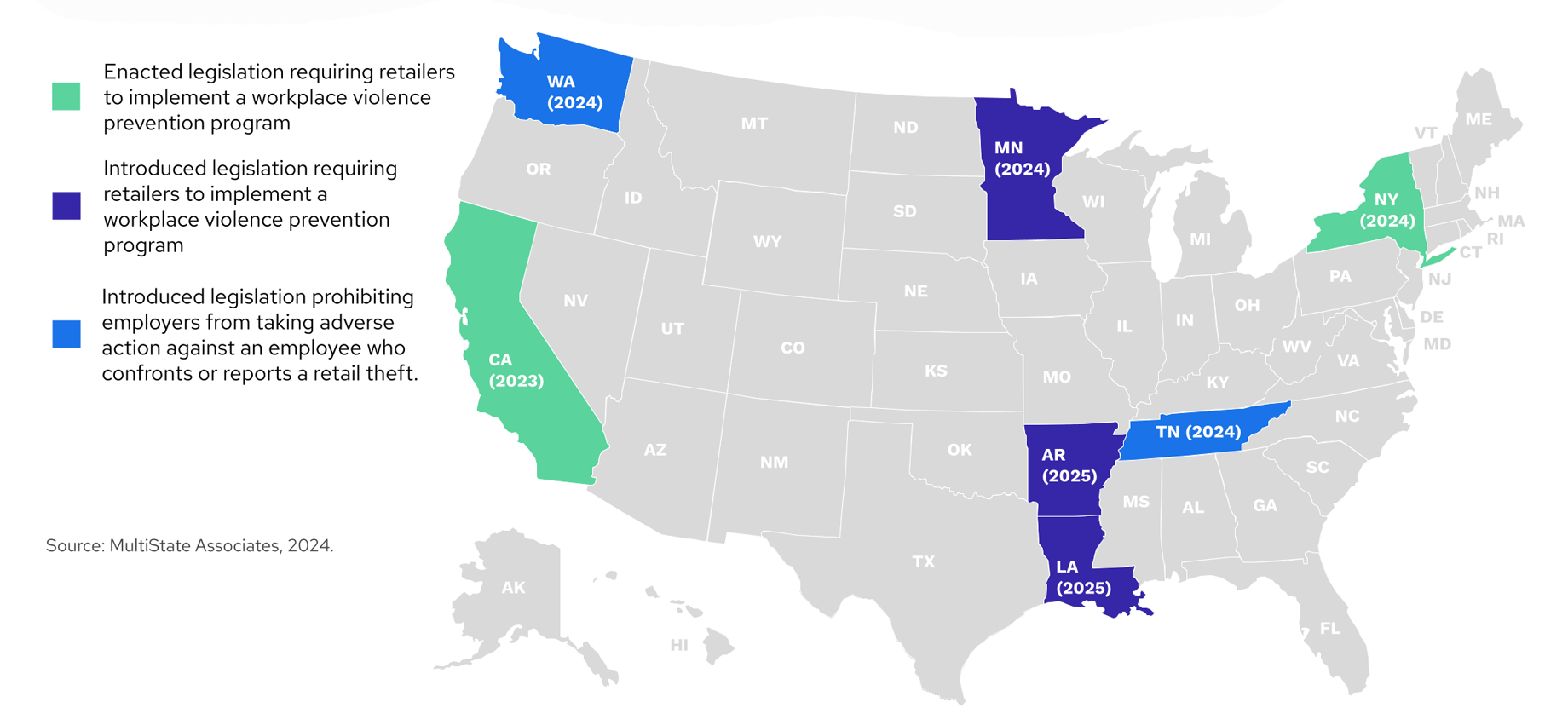Large retailers across New York have begun adopting workplace violence prevention plans to comply with the state’s new Retail Worker Safety Act, which took effect on June 2. New York became the second state after California to enact a retail worker safety law. But unlike California’s version, New York’s law includes language requiring retailers to install a “panic button” in stores. The “panic button” provision, while a source of debate between lawmakers and retailers, has significantly changed since it was first enacted.
Under the original Retail Worker Safety Act, signed into law in September 2024, all retail employees must be trained annually on de-escalation tactics, active shooter drills, emergency procedures and more. For retailers with 500 or more employees statewide, panic buttons must also be installed at easily accessible locations throughout the store, or workers must be provided with wearable cellphone-based panic buttons. More importantly, pressing the panic button would have resulted in a direct call to 911.
The retail community expressed concern that panic buttons would do little to prevent repeat theft offenders from re-entering stores. And while the bill was signed into law with the provision intact, Governor Kathy Hochul (D) left the door open in a chapter amendment filed with the bill for lawmakers to revisit the “panic button” provision in 2025.
Lawmakers answered the Governor’s call and introduced an amended version of the bill (NY SB 740), which was enacted on February 14, 2025. Now, retailers are required to install a silent response button that would alert a security officer or supervisor, rather than the police. In addition, lawmakers amended the law to require violence prevention training every two years, instead of annually.
As states try to reverse the trend of retail theft through broadly increasing punishment for criminals, some lawmakers want to ensure retailers are also safeguarding their stores and employees. California’s 2023 law (CA SB 533) requiring nearly all employers in the state to develop a workplace violence prevention plan and provide training for their employees served as a model for states like New York.
During the 2025 session, lawmakers in Arkansas and Louisiana also considered bills related to retail worker safety. Louisiana’s legislation (LA SB 223) follows the California model in requiring employers to develop and implement a written workspace violence prevention program, while Arkansas’s bill (AR HB 1159) mandates safety protocols for convenience store workers only. Neither bill made it out of their respective committees this cycle but could return.
While these proposals are well-intentioned, most major retail outlets already have policies to protect their workers and provide training for their employees on how best to handle suspected criminals. In addition, proposals focusing on retail worker safety could signal a shift away from increased enforcement of criminal activity for some lawmakers.
